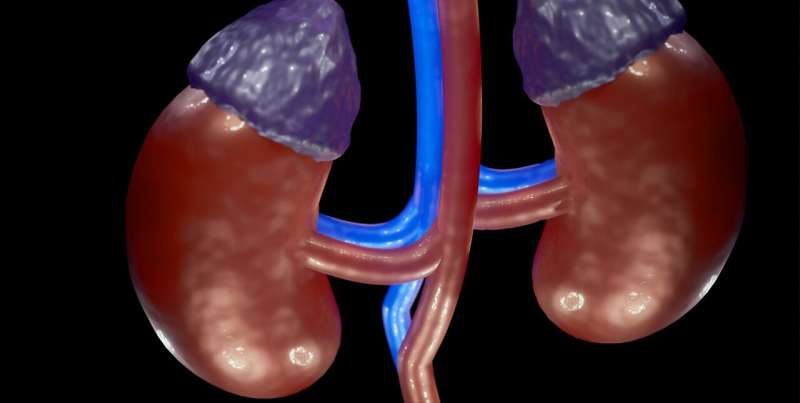This article has been reviewed according to Science X's editorial process and policies. Editors have highlighted the following attributes while ensuring the content's credibility:
fact-checked
peer-reviewed publication
trusted source
proofread
Researchers discover a signaling molecule in neuroblastoma immunosuppression and aggressiveness

The MYCN oncoprotein (proteins related to the growth of cancer cells) plays a key role in starting, advancing and making it difficult to treat various human cancers. When MYCN is overactive, especially in high-risk neuroblastoma (childhood cancer often found in the adrenal glands), the tumors become less responsive to immunotherapy—a treatment that uses the body's immune system to fight cancer. Still, recognition of this problem has not led to any effective strategies to tackle this problem.
In a new study from Boston University Chobanian & Avedisian School of Medicine, researchers found that MYCN selectively increases the levels of a signaling molecule, CKLF, in neuroblastoma cells to suppress anti-tumor immune responses and promote tumor aggressiveness. The findings appear online in Science Advances.
"As scientists, we are looking for ways to make these less responsive tumors more receptive to immunotherapy to increase its effectiveness. Understanding how tumor cells utilize this molecule to communicate with immune cells will facilitate the development of effective immunotherapeutic strategies to provide more effective treatments with fewer toxicities for children with high-risk neuroblastoma," explained corresponding author Hui Feng, MD, Ph.D., associate professor of pharmacology, physiology & biophysics at the school.
The researchers studied an experimental model, clinical patient samples, and in-vitro cell culture. The experimental models of neuroblastoma with and without overexpression of the signaling molecule, CKLF, were compared for their ability to increase tumor aggression through the suppression of anti-tumor immune responses.
According to Xiaodan Qin, Ph.D., the first author of the study and a research scientist in the Feng Lab, the research is critical to understanding the mechanisms by which tumor cells induce a tumor microenvironment that compromises the function of immune cells, and it uncovered additional therapeutic approaches to evoke anti-tumor immune responses.
"The long-term goal of this research is to uncover effective drugs that are much less toxic than chemotherapy and radiotherapy for treating high-risk neuroblastoma and perhaps other types of MYCN-driven childhood cancers," Feng says.
More information: Xiaodan Qin et al, CKLF instigates a "cold" microenvironment to promote MYCN-mediated tumor aggressiveness, Science Advances (2024). DOI: 10.1126/sciadv.adh9547. www.science.org/doi/10.1126/sciadv.adh9547



















